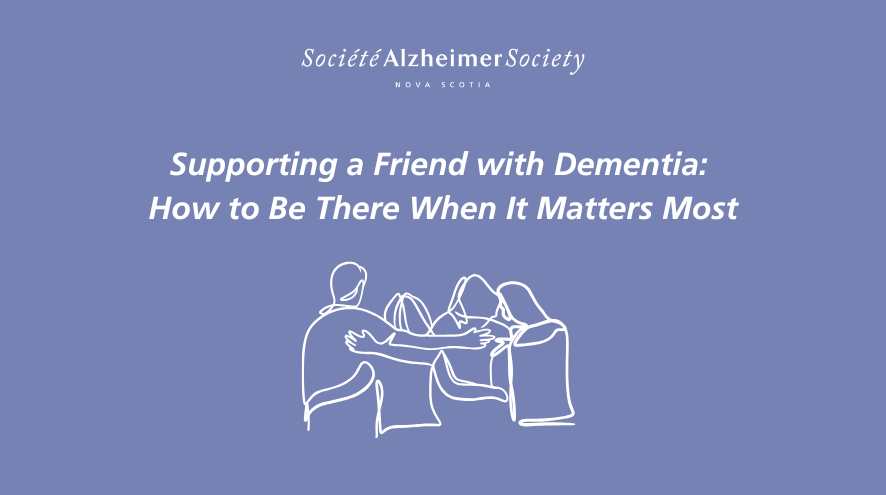Supporting a Friend with Dementia
Shealene writes about tips for supporting a friend with dementia so you can be there when it matters most.

Supporting a Friend with Dementia: How to Be There When It Matters Most
Originally published in the Cape Breton Post
When a friend is diagnosed with dementia, it is natural to feel uncertain about how to respond. You might wonder what to say, how to act, or worry about doing the wrong thing. It is hard to watch someone you care about experience changes in memory, behaviour, and daily life, but one of the most meaningful things you can do is choose to be there. Your ongoing presence and support can make a significant difference in their quality of life.
Dementia is often an unpredictable and deeply personal journey. No two experiences are exactly alike, and it often brings emotional highs and lows. For many living with dementia, especially in rural communities across Cape Breton, the experience can feel isolating.
It’s important to not make assumptions about how the person living with dementia is feeling, but to ask them. Finding a way to validate frustrations and understand their reality goes a long way while making connections and maintaining your friendship.
Educating yourself about dementia is a meaningful first step. To help with this, the Alzheimer Society provides education sessions for many different groups in various communities across Cape Breton. By attending an education session, you can gain a better understanding of what your friend is experiencing and ask questions.
Communication might begin to change, but it can still be meaningful. Your friend may find it harder to follow conversations or express themselves. To support them, try simplifying your language, speaking slowly and clearly, focusing on one idea at a time. Using familiar names and places can help support conversations. If your friend repeats themselves or struggles to find the right words, try to respond without correcting or rushing them. Actions like this can go a long way in showing that you care and accept them as they are.
Making time to visit is an impactful way to stay connected. Regular visits can help reduce feelings of loneliness and remind your friend that they are valued and loved. Bring along things they enjoy such as a favourite snack or a photo album to help with that connection and bring joy.
We all have activities that we love. Extending an invitation and including them in plans helps to keep them socially connected. Plan your visit or outing for a time of day when they might be most comfortable and at their best.
As a friend of someone living with dementia, it is also important to take care of yourself. You may feel grief over the loss of the person you once knew and the loss of your relationship. Talking to others, joining a local support group, or even taking time to reflect can help you care for your own well-being, too.
Being a good friend doesn’t mean having all the answers. It means showing up with kindness, understanding and a willingness to adapt. Your presence and friendship can offer comfort and help your friend feel connected, even as things change.
To find out more about programs, services and education sessions happening in Cape Breton, please call the Dementia Helpline at 1-800-611-6345.
